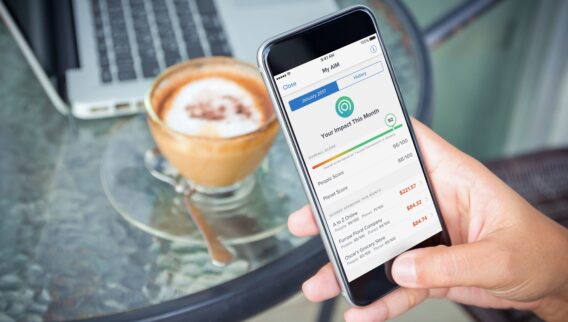Depending on your financial goals, you may find that having more than one bank account makes sense.
But there’s no correct number of bank accounts to have. The key is figuring out which combination of accounts makes for the ideal match between your financial goals and your lifestyle.
Here’s how to determine which bank account combinations will offer the access you need to immediate cash while helping you make the most of your funds held in reserve.
Reasons for Opening Multiple Bank Accounts
Life may seem simpler with only one bank account to track, but there are several scenarios when having multiple bank accounts may make sense:
- Budgeting. Budgeting with multiple bank accounts could prove easier than with only one. Multiple accounts can help you separate spending money from savings and household money from individual earnings.
- Tracking savings goals. Having multiple bank accounts may help track individual savings goals more easily.
- Separating finances. For spouses and domestic partners who prefer to split household finances, multiple bank accounts can help you spend and save in a way that’s right for your relationship.
- Raising money-wise kids. Adding a joint bank account with one of your children can help you teach them good money habits, like sticking to a budget.
Whatever your reasons for having multiple bank accounts, you’ll want to start with the basics and add accounts in a way that makes sense for your finances.
Begin With Checking
Your checking account acts as the gateway to your monthly finances. This is the account to which you’ll direct deposit your paycheck, and you’ll use the debit card from this account as your primary way to pay for your everyday expenses.
Your everyday checking account can bring you benefits for your regular spending. With a wide array of banks competing for your business, you have the luxury of choosing between the benefits of brick-and-mortar banks with local locations close to your home and online banks.
Ensure that your primary checking account has benefits like mobile and online banking, a low opening balance requirement and manageable monthly fees. Many banks waive monthly account fees when you use direct deposit for your paycheck or keep a minimum balance. And many online banks offer extended benefits with checking accounts like ATM fee refunds, waived overdraft charges and more.
The most important thing about your primary checking account is that it keeps the money you’re most likely to need throughout the month within arm’s reach.
Then, consider an additional checking account to meet specific financial goals.
When a Secondary Checking Account Might Be a Fit
Adding a second checking account to your financial mix might be the last thing on your to-do list. Still, it makes sense in a few specific situations like tracking business income and expenses and having the access you need to your money.
Separating your personal and business finances makes accounting and taxes easier if you’re a solopreneur or a small-business owner. A second, separate checking account can make all the difference.
Even if you’re a sole proprietor, you can use a separate checking account to receive your business-related payments and pay your business expenses. Using a separate checking account can make paying your quarterly estimated taxes easier, too, since you’ll have a clear picture of your business income and expenses through a single account.
Adding a second checking account can help you budget by keeping your business expenses accounted for separately from your expenses. You may need to build a budget that accounts for fluctuations in your business income, especially when you’re self-employed. By logging into a single account and seeing the expenses related to your business, you can quickly determine where you may need to cut back or modify spending during months when income ebbs.
How Many Checking Accounts Should I Have?
No hard and fast rule dictates how many checking accounts you should have. The ideal number is the number it takes for you and your family to access your funds and track your spending easily. Too many accounts can complicate both of those tasks.
Add a Savings Account
A savings account is an essential component of a sound financial strategy.
While many checking accounts don’t earn interest, savings accounts do, and they let your money work for you while you go about living your life. You may choose a savings account at the same bank as your primary checking account or explore the many popular online savings accounts available. Online savings accounts often offer substantially higher interest rates than accounts offered by brick-and-mortar banks, making them a wise choice to boost your savings.
You may choose to have more than one savings account for just this reason—to make it easy to move your money from a lower-interest account to one with a higher yield. Yet, as you explore an additional savings account to take advantage of the higher yields offered by online banks, don’t forget about the drawbacks.
Many online banks have a funds delay, meaning moving money between banks won’t be immediate. Transferring funds between online savings accounts at another bank and your primary checking account can take a few days. You’ll likely want to keep your emergency savings in a savings account with a low transfer delay to your primary checking account. You can then use your secondary savings account for cash reserves above and beyond your rainy day threshold.
How Many Savings Accounts Should I Have?
Having multiple savings accounts can help you save toward specific goals. Many banks offer branded savings accounts, like vacation and Christmas-themed accounts, to help you stash money away throughout the year outside of your emergency savings. You’ll want to pay attention to the rates offered on these specialty accounts to make sure you’re earning the most on your money, as an online savings account at another institution might earn a significantly higher yield.
Add a Money Market or Cash Management Account
If you’re frustrated that your checking account funds aren’t earning interest, consider adding a money market or cash management account to your banking toolbelt.
One of the drawbacks with many everyday checking accounts is that they aren’t interest-bearing, but money market and cash management accounts grant you both check and debit card privileges along with paying interest on your funds. The two accounts have notable differences, so it’s best to know how each works so you can figure out which is a better fit for your finances.
Money Market Accounts
Money market accounts (MMAs) are a mix of checking and savings. Like a savings account, MMAs offer interest earnings. Like a checking account, they typically provide debit and check-writing privileges. A money market account could be a fit if you want a combination of interest earnings and liquidity.
Cash Management Accounts
Cash management accounts are typically offered through online brokerages and function much like a checking account. You’ll have check-writing and debit card privileges and unlimited transactions each month. Cash management accounts can come with various added benefits that money market accounts don’t, such as ATM-fee refunds, cashback rewards, low to no minimum balance requirements, and other “member” benefits, depending on the provider.
How to Manage Multiple Bank Accounts
You’ll use the same basic financial practices to manage multiple bank accounts as you would manage only one, from balancing your account to sticking to a budget.
However, there are a few best practices to keep in mind as you add bank accounts to your portfolio:
- Use the right debit card. Whether in-store or online, you’ll want to check that you’re using the right account to pay for the right things.
- Respect your goals. Even when you have multiple accounts, they all work together to help you achieve your financial goals. Bad habits in one account can hurt all of your accounts.
- Create shared rules. Joint account holders can benefit from a shared set of rules that govern how you’ll use funds. Communication is key for making jointly-held accounts work.
Benefits of Multiple Bank Accounts
Your money can potentially work harder for you by using a combination of accounts. Here are some of the benefits multiple accounts can bring to your finances:
- Higher interest rates. Brick-and-mortar banking customers can tap into the higher interest rates offered by online savings accounts. Everyday checking account users can get a boost by switching to a cash management account at an online bank.
- Dedicated savings accounts. You can keep your savings goals on track with automated savings from your checking account to the savings account of your choice, earning the most interest for your money as possible each month.
- Enhanced liquidity. While interest-bearing accounts like money market and savings accounts may charge fees when you make more than a set number of withdrawals per month, an online checking account or cash management account can help you earn interest and have constant access to your funds.
When adding additional bank accounts to your financial mix, look for the highest possible interest rate while taking note of minimum balances and monthly fees. Add accounts that further your savings goals, and be mindful of what it takes to add or change an account, including new debit card numbers and automatic payments you’ll need to switch over.
Drawbacks to Multiple Bank Accounts
For all the benefits of multiple bank accounts, there are reasons why this choice may not make sense for your finances:
- More accounts to reconcile. Each month, you’ll have more than just a checking and savings account at your local bank to track, which can become confusing.
- Minimum balances. Many accounts have minimum balances you have to meet to earn interest. Make sure you can meet these requirements.
- Higher fees. By dividing up your savings, you may find that you’re not meeting minimum balance requirements to avoid monthly fees.
If you’re looking for simplicity, multiple bank accounts might not be the best solution for your finances and lifestyle. In this case, you can explore how to find a basic checking and savings account at a single institution to serve your monthly expenses and savings goals.
The Bottom Line
If you’re organized and don’t mind doing a bit of research, having multiple bank accounts may help you in the long run, so long as this strategy helps you meet your financial goals. Whether you maintain one bank account or several, be sure to compare the fees and balance requirements for all available options and always keep your emergency savings in an easy-to-access account to help with life’s unexpected events.
Frequently Asked Questions (FAQs)
How many bank accounts are too many?
If you find it difficult to keep track of your spending with the number of accounts you have, you could have too many bank accounts. Bank accounts should help you meet your financial goals without becoming too cumbersome.
Is having multiple bank accounts bad for credit?
Credit scores aren’t affected by how many bank accounts you have. Multiple bank accounts are only bad for your credit if you repeatedly pass bad checks and those checks go to collections.
How many bank accounts should a married couple have?
It depends on your financial needs and goals. Depending on whether you choose to share all earnings 100% or split finances, married couples may choose to have one or more checking accounts.
How many bank accounts should I have for my business?
Your business may choose to open both a checking and a savings account. Depending on your industry, you may require additional bank accounts, such as escrow accounts.
How can I check how many bank accounts I have?
You can check your credit report, ask family members and search online databases for unclaimed money in your name.









